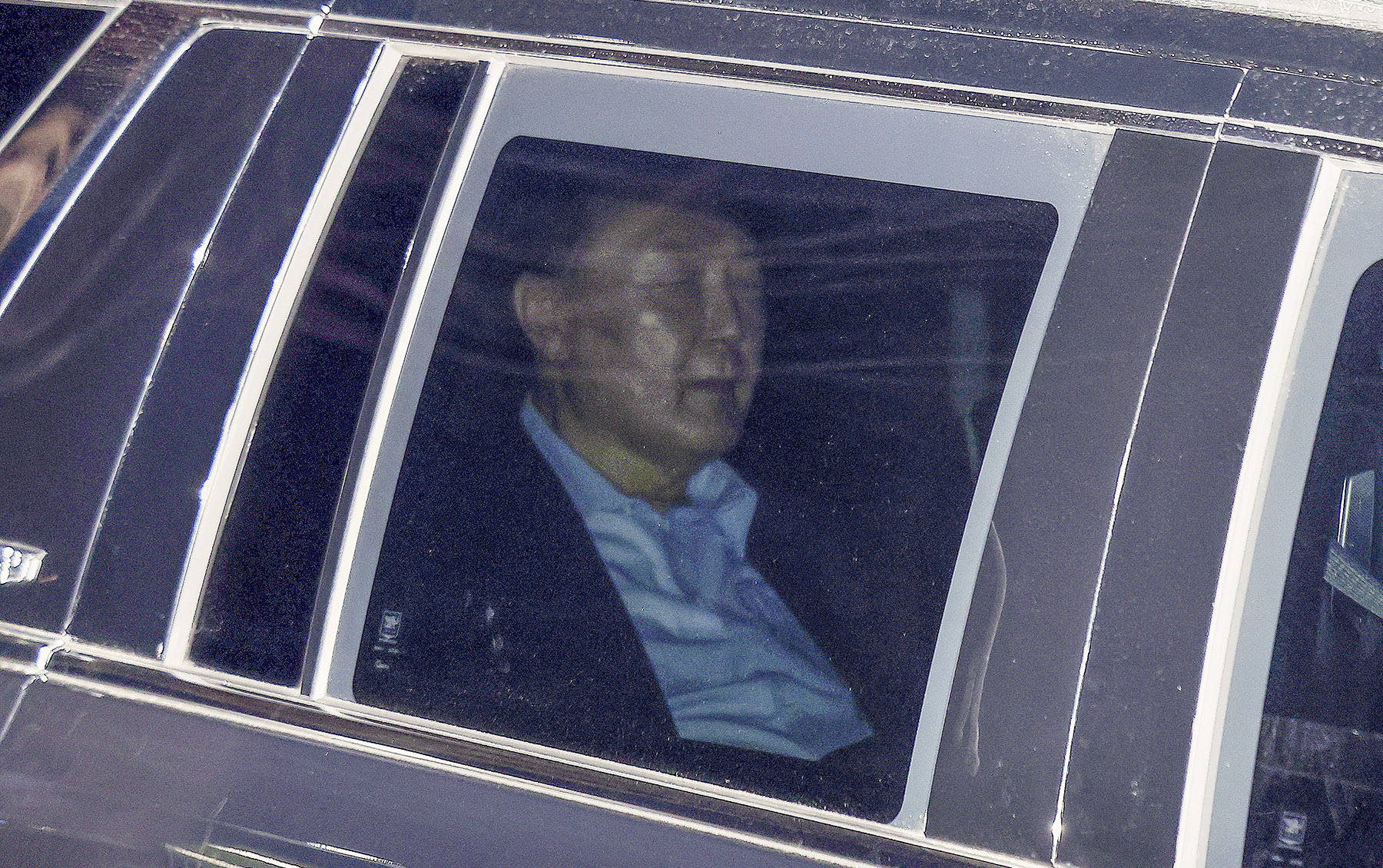
South Korean President Yoon Suk-yeol was arrested at the presidential residence on Wednesday, becoming the country's first sitting president to be kept in custody.
South Korean investigators announced early on Wednesday that they had arrested the impeached president during their second attempt to execute the arrest warrant.
Yoon's arrest is a result of his declaration on Dec 3 of martial law, which the National Assembly overturned just hours later. On Dec 14, the National Assembly voted to impeach Yoon, and a trial is underway in the nation's Constitutional Court. Yoon's presidential powers have been suspended.
READ MORE: S. Korean investigators question arrested Yoon in insurrection probe
In a pre-recorded message, Yoon said he submitted himself for questioning to avoid any bloodshed, though he said the investigation and arrest were illegal. He deplored the execution of the arrest warrant, which he described as being carried out by force.
Da Zhigang, a researcher at the Heilongjiang Provincial Academy of Social Sciences' Institute of Northeast Asian Studies, said the issue of Yoon's arrest has sparked a significant societal divide in South Korea, as seen in the recent surge in demonstrations by Yoon's supporters as well as his detractors, highlighting the intensifying political strife between the ruling and opposition parties.
Da said the president's statement showed that Yoon lacked confidence "in the presidential guards' ability to withstand a second arrest attempt led by the Corruption Investigation Office for High-ranking Officials. Given this, Yoon aims to enhance his image and public support by voluntarily cooperating with the arrest to avoid conflict".
Although polls have indicated that most South Koreans disapproved of Yoon's martial law declaration and supported his impeachment, the prolonged political standoff has energized his supporters, leading to a resurgence of support for his People Power Party, the country's ruling party, in recent weeks.
According to the latest Realmeter poll results released on Monday, support for the PPP had reached 40.8 percent, while the main opposition Democratic Party's support was at 42.2 percent. The difference falls within the margin of error and represents a significant narrowing from the previous week's 10.8 percentage point gap.
The Corruption Investigation Office for High-ranking Officials said on Wednesday that during the investigation, Yoon consistently refused to make any statements and declined to allow the questioning process to be recorded or videotaped.
Zhan Debin, director of the Center for Korean Peninsula Studies at Shanghai University of International Business and Economics, said that Yoon's arrest is of strong symbolic significance and is likely to expedite judicial proceedings.
Kwon Ki-sik, a former presidential secretary for monitoring of state affairs, said the arrest is likely to expedite the Constitutional Court's review of Yoon's impeachment case, and a verdict could be reached as early as mid-March.
ALSO READ: Yoon's impeachment trial adjourned as he skips first hearing
Yoon's legal team issued a statement on Wednesday saying that the CIO does not have the authority to investigate the president, and the arrest warrant was illegal. The team vowed to hold the CIO and the police legally accountable for what it called the unlawful execution of the arrest warrant.
Da, the researcher, said that Yoon's case will likely lead to a prolonged struggle. "The CIO will try to speed up the investigation in collaboration with the Defense Ministry and the police. The ruling party will use favorable laws to defend and countersue.
"What's clear is that this political turmoil harms South Korea's national image and economy. South Korea's national instability may also increase regional uncertainty," Da added.
In late December, the exchange rate of the South Korean won at one point plummeted to 1,487 against the US dollar, the lowest in more than 15 years.
When asked about Yoon's arrest at a regular news conference on Wednesday, Chinese Foreign Ministry spokesman Guo Jiakun said he would not comment on South Korea's domestic affairs.
"China and the Republic of Korea are important neighbors and cooperation partners. China stands ready to work with the ROK for the sound and steady growth of bilateral relations," Guo said.
Agencies contributed to this story.


